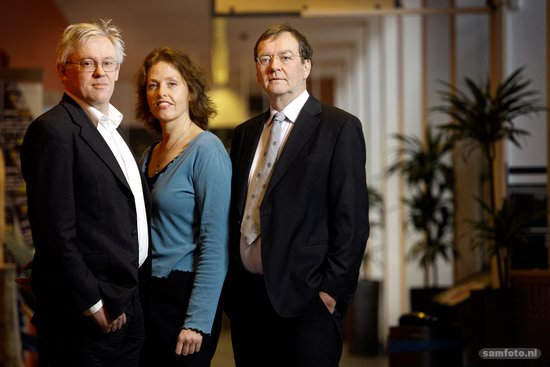A journey well begun, but a long way to go seems to be the consensus about TU Delft’s Graduate School. Started in three faculties in 2011, the Graduate School (GS) is a more structured approach to the PhD both in terms of research and the organizational structure.
“We’re gradually strengthening the GS, of course there are challenges, but we are satisfied with a lot of things. One of the reasons we changed was because a lot of candidates were dropping out and some were taking much longer than four years. Now, with constant interaction, not only with their supervisor, but with other candidates, candidates are more confident and reassured,” says Stella van der Meulen, coordinator of the Graduate School.
The Graduate School has a head office with vice-rector Peter Wieringa at the helm and each faculty has its own, somewhat customized Graduate School. Every GS candidate has to have regular meetings with supervisors, a Go/No Go meeting, attend seminars and courses alongside their research.
In the new structure, PhD researchers work with a credit system. They attend courses for credits, and some research work and publications also count towards credits. Besides research related courses, topics include Transferrable Skills such as Time Management and Writing Scientific Papers in English. A PhD candidate is obligated to complete fifteen days of transferable skills training during their four years.
“There are some things you learn quicker from a course than individually, or more efficiently in a group than from individual (overburdened) supervisors,” says Professor Pieter Jan Stappers, the dean of the Graduate School of the department of Industrial Design Engineering. He adds, “Making it compulsory sometimes is the only way of reaching those PhD candidates who are not ‘sent’ by their supervisors.”
The courses bring together candidates from different departments, creating a network of people who would otherwise have been isolated within their own core research groups. “Yes, it’s one of the better things about the GS. I have been able to meet other PhDs and get to know about research areas different from mine. At GS courses we discuss our issues with research and supervisors. You purge yourself of your anxieties,” says Shruti Devasenapathy, who’s doing her PhD in Smart Grids. However, there are still problems. “Popular courses have limited seats and fill up quickly. Also, sometimes the courses take up a lot of time- I once spent 3 days at a GS course,” said Devasenapathy.
Tugce Akkaya, who is doing her PhD in Applied Mathematics, points that not all courses are relevant. “The transferable skills courses are really helpful. But, a lot of people cannot find relevant discipline-related courses. We have to complete fifteen credits in this part and it is sometimes hard to find a course which is related with our project to complete the credits.”
Another candidate, Gleb Polevoy, pursuing a PhD in informatics, says the transferrable skills courses are helpful but the required numbers of courses take up too much time away from research. “External PhD candidates, and candidates working abroad for their project find difficulty in finding spaces in their schedule, and this is something we hope will be improved with experience,” adds Prof. Stappers.
Van Der Meulen says it will only get better with time. “We are already looking at Advanced Level courses in the popular topics. There’s always room for improvement,” she adds.
Candidate Woes
• GS website tough to navigate
• Popular courses fill up quickly
• Not enough relevant academic courses
• Scheduling courses is difficult
• Too many courses required



Comments are closed.